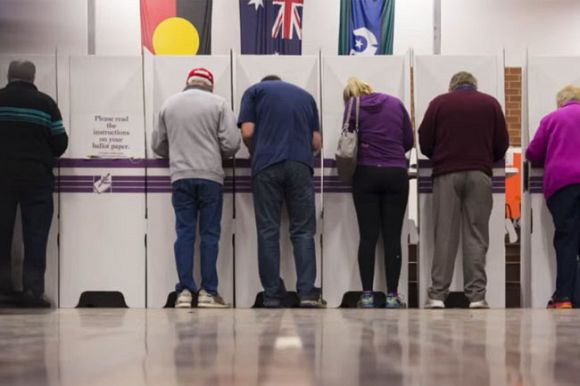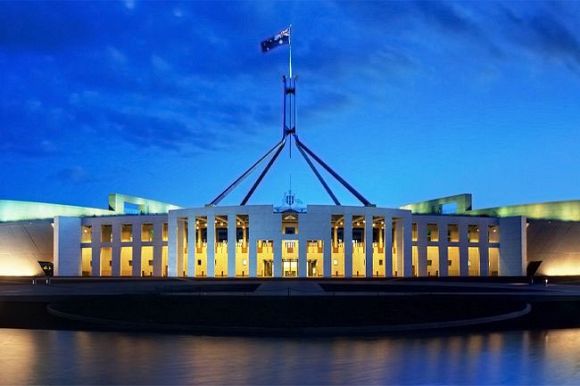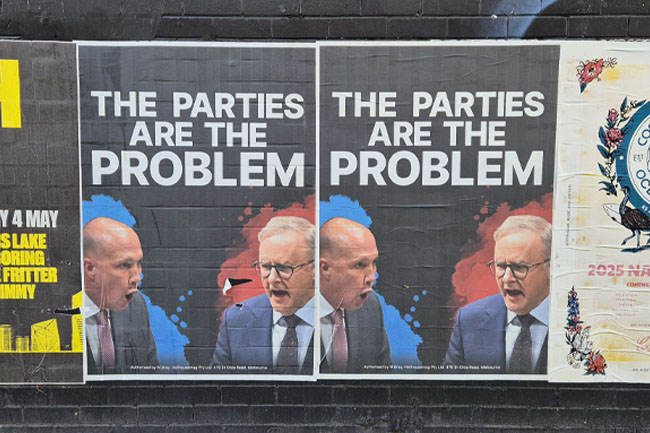The Albanese Government’s landslide win was built on just a third of the vote, reminding us that Australia’s electoral system is broken and overdue for reform, writes Dr Klaas Woldring.
AN IMPORTANT DISCUSSION on proportional representation was heard on the ABC when the former leader of the Greens was interviewed recently by Paul Barclay of the Australia Institute. Ms Christine Milne, stressing the need for “one vote, one value”, gave an outstanding explanation of the widespread use of proportional representation, particularly in European countries.
The Greens in Australia have been denied this essential value of democracy in the lower houses of Parliament. Although they are in a relatively strong position in the Senate, if the major parties combine to block Green policies in that Chamber, the future doesn’t look good. There is going to be a major ALP conference in August about critical policy positions like tax and housing, but no mention was made thus far about the electoral system, the Constitution and the republic.
Surely, the time has come for bold reforms and action. Advocates of alternative options should be invited to speak at this conference. If the ALP is to significantly renew its policy program, it should invite speakers, including non-members like Christine Milne, rather than members only.
However, the 2025 Election and its immediate aftermath suggest that the first major decisions are a continuation of the ultra-cautious approach by the Albanese team adopted before that election. Actually, even worse than that, if one listened to the defence of the Woodside decision by Minister for Climate Change and Energy Chris Bowen on a recent ABC program. Several candid major articles in the Sydney Morning Herald – for example, by Ross Gittins and, earlier, Ross Garnaut, as well as several letters to the editor – expressed disbelief about this decision.
The election win was in part due to the weak performance of the former Liberal Party leader and the electoral system, which turned the 34.5 per cent for the ALP into a 94-seat (62.7 per cent) comfortable majority. That was plainly a very lucky outcome for the ALP and, potentially, Australia. However, it demonstrated, if evidence was still required, that Australia’s electoral system is plainly not at all democratic and that such a result could go the other way next time.
Given this luck, the ALP is now in a great position to bring about major policy and system changes. Thus far, as Gittens suggested, Albanese has only revealed a ‘do-nothing plan’. Chris Bowen defended the Woodside decision and suggested we could still achieve net zero by 2050 (instead of 2070) if we could manage to achieve several other measures nationally. There was no view expressed on what the effect of the export of the gas would be in other countries.
A major underlying problem is the electoral system, which doesn’t give the Greens a fair go at all in the House of Representatives. The need for major electoral system change is urgent. The current system is usually somewhat doctored after every federal election by the Parliamentary Joint Standing Committee on Electoral Matters. That committee is always entirely dominated by the major parties. It is certainly not an electoral system reform committee, in reality, far from it.
Also, the adversarial bickering by these major parties can hardly be described anymore as a “debate”. Most of the voters have had enough of it; that is reflected in the outcome of the last five or six federal elections. Younger people, especially, want serious reform. The Westminster heritage of the single-member electoral district, which is the very origin of the two-party system, no longer delivers a healthy democracy, if it ever did.
The idea that the single transferable vote system – that is what we have in Australia – is a democratic system is plainly wrong. This was shown again with the outcome of the 2025 Federal Election. Instead of single-member districts, Australia should move to multi-member districts. Possibly even use state-wide districts or, possibly, with some special provisions for country districts, given the very high percentage of voters living in large cities. Parties can offer party lists of candidates, but every voter has just one vote for one party.
What we don't see in the printed media are assessments about alternative electoral systems, none at all. Sadly, our universities also have failed society in this respect, with the exception of a small number of progressive academics. Very few journalists seem to consider it worthwhile to ask the obvious question: Why is it so and what can and needs to be done about it?
The major parties themselves certainly are the last to raise such questions. One of the reasons why the knowledge of alternative voting systems is so very inadequate is that Civics education in high schools has been increasingly inadequate. At universities, politics courses have also declined, sometimes entirely disappeared, following the commercialisation of tertiary education, from the mid-1990s onwards.
It is not just the pork-barrelling and the lack of effective alternatives in the lower houses of parliaments that block fair and effective representation, therefore democratic government. It is the virtual impossibility for the governing party to introduce bold alternative legislation, major renewals and daring longer-term projects. When the voting system discourages risk-taking in parliaments, Australia stands to lose great opportunities. This has gone on for far too long already.
Dr Klaas Woldring is a former associate professor at Southern Cross University and former convenor of ABC Friends (Central Coast).
 This work is licensed under a Creative Commons Attribution-NonCommercial-NoDerivs 3.0 Australia License
This work is licensed under a Creative Commons Attribution-NonCommercial-NoDerivs 3.0 Australia License
Support independent journalism Subscribe to IA.














